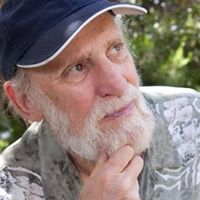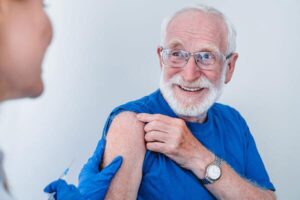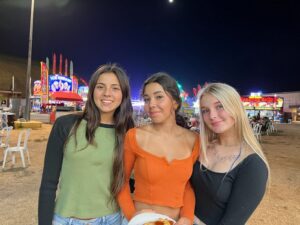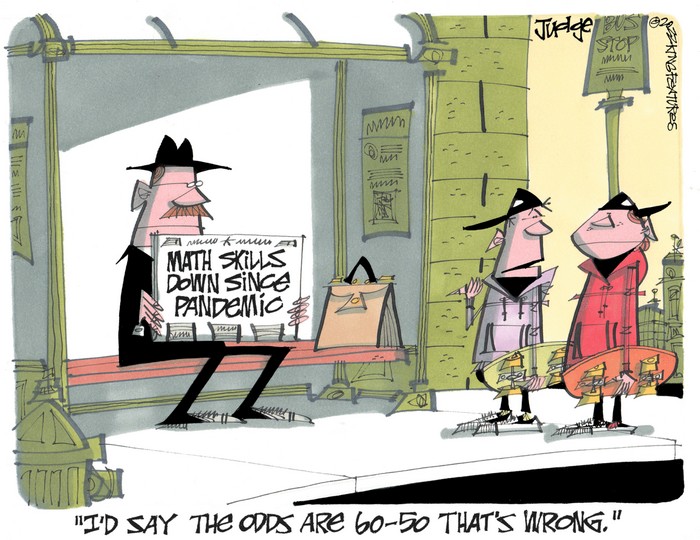All posts by admin
Ventura city council candidates’ forum to be held
Hosted by the Ventura Social Services Task Force and Homes For All
Ventura City Council Candidates are invited to a forum to express their views about affordable housing and homelessness. As noted by a recent City of Ventura survey, the incidence of homelessness has become a top concern for the residents of Ventura. The candidate forum will feature an array of questions regarding housing affordability, services for the unhoused, zoning, Housing Element implementation and much more. Jeffery Lambert will be the moderator for the evening.
Church of the Foothills- 6279 Foothill Road, Ventura 6:30-9PM, Wednesday September 28. City Council Candidates for Districts 1, 4, 5 and 6
Microglia are special cells of the immune system that help protect the brain and nervous system
NIA researchers discovered that individuals with a DNA variant that has an effect only in an immune cell present in the brain, called microglia, have an increased risk of developing Parkinson’s disease. Their study results, published July 27 in Science Translational Medicine, suggest scientists should consider cell type when examining possible causes of Parkinson’s and other neurodegenerative disorders.
Microglia are special cells of the immune system that help protect the brain and nervous system by eating damaged cells or pathogens. The variant the researchers found originates in a region of DNA near the leucine-rich repeat kinase 2 (LRRK2) gene, but not inside of the gene. The researchers knew that mutations in the LRRK2 gene and in DNA regions close by LRRK2 contributed to Parkinson’s, but the mechanism for how these variants led to the development of the disease, as well as which cell types were involved, remained unknown.
To address the question, the researchers used brain samples that had previously been sequenced by the North American Brain Expression Consortium. The researchers performed single nuclei RNA sequencing to identify which types of cells in the brain had instructions for making the LRRK2 protein. Once they determined that multiple types of brain cells — including oligodendrocyte precursor cells, excitatory neurons, and microglia — could make lots of LRKK2 protein, they needed to verify which group of cells worked to increase the risk of Parkinson’s. The researchers established that one particular variant increased Parkinson’s risk through microglia, despite being present in many other cell types. The discovery advances the science a step closer to understanding the involvement of gene variants in disease progression.
Scientists have found that people who are members of families that develop late-stage Parkinson’s have mutations in the LRKK2 gene. The current results suggest that people who do not have a family history of the disease may benefit from therapies that inhibit LRKK2, currently in clinical trials. Additionally, the new findings imply microglia with dysfunctional LRKK2 protein may contribute to the inflammation and neuronal death seen in Parkinson’s.
This research was conducted by NIA Intramural Research Program scientists, projects ZIAAG000947 and Z01AG000949.
Vol. 15, No. 26 – Sept 21 – Oct 4, 2022 – Opinion/Editorial
 ∙ Motivated to provide better homeless services, the Ventura City Council amended its 2022-23 budget by adding 2 new police officer positions. The positions for the department’s patrol task force will cost $409,000 annually. The City Council held a lengthy debate on this subject and voted 5-1-1 to approve the positions.
∙ Motivated to provide better homeless services, the Ventura City Council amended its 2022-23 budget by adding 2 new police officer positions. The positions for the department’s patrol task force will cost $409,000 annually. The City Council held a lengthy debate on this subject and voted 5-1-1 to approve the positions.
∙ Artists at Ventura’s Art City studios received a final notice ending the lease on the property located at 197 Dubbers St. Art City has been there for over 37 years. The amazing outdoor property features stone and wood sculptures and an array of other art forms. They were instructed to vacate their studios by Sept. 30. This will not be an easy task as much of the artwork there weighs hundreds, if not thousands, of pounds and finding another location will be extremely difficult.
The reason for this is quite simple – this property is worth millions of dollars, and the owner certainly has the right to evict them. It’s a sad loss for Ventura (if they can’t relocate).
∙ Another staple of Ventura, the Ford of Ventura dealership is closing in October. A reason has not been given. It is located at 3440 Main St. across from the Pacific View Mall.
The original dealership, R.E. Barber Ford, was owned by the Barber family until 1960 when Larry Meister purchased the dealership. When Meister died in 2005 his wife Barbara continued running it, along with several other dealerships. She slowly sold her dealerships and sold the Ford dealership to Sil Gonzales in March 2014, when it was renamed Ford of Ventura.
Barbara Meister has remained a great contributor to the arts and non-profits in Ventura.
∙ Ventura’s own Patagonia founder Yvon Chouinard (and family) is giving his company away. They have transferred their voting stock, valued at $3 billion, to the new Patagonia Purpose Trust. The remaining 98% shares of the company was donated to the Holdfast Collective, a non-profit that will receive all of the company’s profits, close to $100 million a year to fight climate change and organizations that will protect wild land and fight the climate crisis.
Yvon started manufacturing in 1957 when he created a line of reusable climbing spikes, and from that it grew into a world-wide clothing manufacturer all motivated by his love of the outdoors.
Patagonia has always been selected as one of the best places to work in the country.
This is where it all began. Great Pacific Iron Works was Patagonia’s very first store. They opened their doors in 1972 in the old Hobson meat packing plant a short drive to Yvon Chouinard’s Tin Shed blacksmith shop. The store carries an assortment of quality Patagonia outdoor clothing and gear for the whole family. Located as part of their company “campus” at 235 W Santa Clara St.
∙ California has launched a publicly funded website to promote the state’s abortion services, listing clinics, linking to financial help for travel and lodging and letting teenagers in other states know they don’t need their parents’ permission to get an abortion in the state.
The website is part of Gov. Gavin Newsom’s pledge to make California a sanctuary for women seeking abortions now that the U.S. Supreme Court has overturned Roe v. Wade – the landmark 1973 decision that said states could not ban abortion.
The state budget includes $200 million to strengthen access to abortion services in California, including $1 million to build a website promoting the state’s abortion services.
On the other hand, the West Virginia Legislature (and other states) has passed a bill that will prohibit nearly all abortions except to save a pregnant person’s life or in certain cases that involve rape or incest (very nice of them).
According to the draft of the bill, any physician or other licensed medical practitioner who intentionally or recklessly performs or induces an abortion in violation of the law could be subject to discipline, including losing their medical license.
∙ Governor Gavin Newsom also signed legislation authored by Assemblymember Jesse Gabriel (D – Woodland Hills) to help California better address the global climate crisis. Assembly Bill (AB) 1384 will empower California’s state agencies and departments to implement comprehensive climate adaptation strategies that outline governance, goals, and metrics to ensure the state meets its climate adaptation goals.
“Climate change is real and is impacting communities throughout California on a daily basis,” said Assemblymember Gabriel. Could that be why it was 100 degrees here a few weeks ago?
Skin cancer is a very common cancer in the United States.
The main cause of skin cancer is the sun. Sunlamps and tanning booths can also cause skin cancer. Anyone, of any skin color, can get skin cancer. People with fair skin that freckles easily are at greatest risk. Skin cancer may be cured if it is found before it spreads to other parts of the body.
There are three types of skin cancers. Two types, basal cell carcinoma and squamous cell carcinoma, grow slowly and rarely spread to other parts of the body. These types of cancer are usually found on parts of the skin most often exposed to the sun, like the head, face, neck, hands, and arms. But they can happen anywhere on your body. The third and most dangerous type of skin cancer is melanoma. It is rarer than the other types, but it can spread to other organs and be deadly.
Check your skin once a month for things that may be signs of cancer. Skin cancer is rarely painful. Look for changes such as a new growth, a sore that doesn’t heal, or a bleeding mole.
Some sun can be good for you, but to keep your skin healthy, be careful:
Limit time in the sun. It’s okay to go out during the day, but try to avoid being in sun during peak times when the sun’s rays are strongest. For example, during the summer, try to stay out of the sun between 10 a.m. and 4 p.m. Don’t be fooled by cloudy skies. The sun’s rays can go through clouds. You can also get sunburned if you are in water, so be careful when you are in a pool, lake, or the ocean.
Use sunscreen. Look for sunscreen with an SPF (sun protection factor) number of 15 or higher. It’s best to choose sunscreens with “broad spectrum” on the label. Put the sunscreen on 15 to 30 minutes before you go outside. Sunscreen should be reapplied at least every 2 hours. You need to put sunscreen on more often if you are swimming, sweating, or rubbing your skin with a towel.
Wear protective clothing. A hat with a wide brim can shade your neck, ears, eyes, and head. Look for sunglasses that block 99 to 100 percent of the sun’s rays. If you have to be in the sun, wear loose, lightweight, long-sleeved shirts and long pants or long skirts.
Avoid tanning. Don’t use sunlamps or tanning beds. Tanning pills are not approved by the U.S. Food and Drug Administration (FDA) and might not be safe.
Your skin may change with age. But remember, there are things you can do to help. Check your skin often. If you find any changes that worry you, see your doctor.
Which vaccines do older adults need?

As you get older, a health care provider may recommend vaccinations, also known as shots or immunizations, to help prevent certain illnesses.
Talk with a doctor about which of the following vaccines you need. Make sure to protect yourself as much as possible by keeping your vaccinations up to date.
COVID-19 is a respiratory disease that causes symptoms such as fever, cough, and shortness of breath. Older adults are more likely than younger people to get very sick from COVID-19. The disease can lead to serious illness and death.
The Centers for Disease Control and Prevention (CDC) recommends that older adults stay up to date with COVID-19 vaccines, including booster shots. Read more about COVID-19 vaccines from the CDC. Contact your local health department or visit Vaccines.gov to find out where you can get vaccinated.
Flu — short for influenza — is a virus that can cause fever, chills, sore throat, stuffy nose, headache, and muscle aches. Flu is very serious when it gets in your lungs. Older adults are at a higher risk for developing serious complications from the flu, such as pneumonia.
The flu is easy to pass from person to person. The virus also changes over time, which means you can get it again. To ensure flu vaccines remain effective, the vaccine is updated every year.
Ideally, you should get your vaccine by the end of October each year so you are protected when the flu season starts. It takes at least two weeks for the vaccine to be effective. However, if you have not received your flu vaccine by the end of October, it’s not too late — flu season typically peaks in December or January.
There are flu vaccines designed specifically for people age 65 and older. Medicare will pay for the vaccine, and so will private health insurance plans. You can get a flu vaccine at a doctor’s office or local health department, as well as at some grocery stores, drug stores, and pharmacies.
Pneumococcal disease is a serious infection that spreads from person to person by air. It often causes pneumonia in the lungs and it can affect other parts of the body. Older adults are at higher risk than younger people of getting very sick or dying from pneumococcal disease.
The CDC recommends that all adults 65 and older get pneumococcal vaccination. This vaccine will help protect you from getting a serious infection, including pneumonia. There are two types of pneumococcal vaccine available (PPSV23 and PCV13). Talk with a health care provider to find out which one is best for you, or if you need both.
Shingles is caused by the same virus as chickenpox. If you had chickenpox, the virus is still in your body. As you get older, the virus could become active again and cause shingles.
Shingles affects the nerves. Common symptoms include burning, shooting pain, tingling, and/or itching, as well as a rash with fluid-filled blisters. Even when the rash disappears, the pain can remain. This is called post-herpetic neuralgia, or PHN.
The shingles vaccine is safe, and it may keep you from getting shingles and PHN. Healthy adults age 50 and older should get vaccinated with the shingles vaccine.
You should get a shingles vaccine even if you’ve already had chickenpox or the chickenpox vaccine, or if you don’t remember whether you had chickenpox.
You can get the shingles vaccine at a doctor’s office and at some pharmacies. Medicare Part D and private health insurance plans may pay some or all of the cost. Check with Medicare or your health plan to find out if it is covered.
Author’s luncheon fundraiser to support the Assistance League® of Ventura County
On Saturday, October 15th the Assistance League® of Ventura County will be hosting an Author’s Luncheon at the Four Points by Sheraton Ventura Harbor. This fundraiser features three amazing authors, each representing a different genre (non-fiction, fiction, and children’s books). Each of the writers will be discussing their work, diving into how they weave together the stories that grace the pages of their books. The event includes a three-course luncheon, silent auction, and more, with all proceeds benefitting the philanthropic programs of Assistance League® of Ventura County. Below are some details about each author and their books.
Betsy Blanchard Chess is the local non-fiction writer of Daughter of the Land: Growing Up in the Citrus Capitol of the World, which tells the story of a free-spirited child of privilege sheltered amongst the lemon and orange groves of the Santa Clara Valley. This tale weaves both family legacy and how the author fits into the story of her pioneering ancestors.
Award-winning author Sheila Lowe writes stories of psychological suspense that puts ordinary people into extraordinary circumstances. Like her fictional character Claudia Rose in the award-winning Forensic Handwriting series, Sheila is a real-life forensic handwriting examiner who is recognized as an expert in the court system. She also writes the Beyond the Veil paranormal suspense series and nonfiction books about handwriting and personality.
Children’s author Sarah Lynn Scheerger is a school-based counselor and the author of eight books, ranging from picture books to middle-grade novels to young adult novels. Her debut middle-grade novel, Operation Frog Effect, was nominated for four 2020-2021 regional lists (Sunshine State Young Readers List Selection, Maryland Black-Eyed Susan, Surrey Schools Book of The Year selection, VA READS) and nominated for three 2021-2022 lists (Young Hoosier Book Award, Land of Enchantment Book Award, Louisiana Young Reader’s Choice Award).
Tickets to this event cost $65, and can be purchased on their website noted below. The doors open at 9AM, with the event running to 10AM-1PM. For more information, please contact the organization at 805.643.2458 or [email protected]. You can find them at www.assistanceleagueventuracounty.org as well as on Facebook and Instagram.
Vol. 15, No. 26 – Sept 21 – Oct 4, 2022 – Movie Review
Streaming Spotlight by Cindy Summers
Inside the Mind of a Cat – Netflix Documentary

Breeze rating from 1 to 4 palm trees, 4 being best.
“Inside the Mind of a Cat” solves some mysteries about cats, decodes their crazy antics and deciphers their hidden language. Experts from various fields related to cats share some interesting and incredible facts about cats including that they can over 30mph and jump up to 5-6 times their height, which would be like a human jumping over a giraffe. They also have more vertebrae than most mammals with special elastic cushions between them, making their spines incredibly flexible and helping them to be the fastest animal on land.
As one expert, Dr. Bruce Kornriech, Director Cornell Feline Health Center and “Cat Physiologist shared if one were asked to engineer the perfect land predator in terms of physical traits, behavior, and perception, it’s hard to imagine one better that the cat. The scientific name for the domestic cat is Felis catus derived from the African wildcat. Today they number approximately 400 millions Felis catus worldwide, making them one fo the ten most successful mammals to ever walk the earth. In 10,000 their genetics have changed very little, so your basically living with a wild animal in your home.
Dr. Kristyn Vitale is an Associate Professor at Unity College and a “Cat Psychologist” who has done a tremendous amount of study around cat behaviors and the mysteries of the feline mind. She’s proven cat’s do know their names, their owners and understand the issue of non-permanence. Her research took her to Japan where in 2017 cats outnumbered dogs as pets and now 9 million cats live in Japan where top cat scientist Dr. Saho Takagi does cat research at Azabu University. Though some behavioral traits were identical, a few things were different between the cats in the US and those that lived in Japan due to the fact that the cats in Japan are primarily indoors and have limited exposure to the world outside.
A stand out group was the Savitsky Cats from Ukraine that did an amazing cat stunt show on America’s Got Talent and even made it to the finals. Jumping through hoops, scaling tightropes, rolling barrels, balancing on balls. Owners Maryna and her mother Svitlana shared that though cats have their attitudes, you can teach a cat to do anything. The main thing in their training is that they have to do what works for the cat, not what works for people, and to be very patient. The Savitsky’s don’t force their cats to do their amazing stunts, they let each cat’s potential reveal itself.
They have recently discovered archaeological remains of a cat with a human dating back to 8,000 B.C. which would indicate that humans and cats have been together for over 10,000 years. The streets of the city of Istanbul are home to more than 100,000 community cats that are perfectly suited to an urban lifestyle. The cats that live there belong to their neighborhoods, not owned by a specific person, and people provide for the infrastructure and their basic needs, though they do not belong to anyone specifically. In 2021 Istanbul introduced new laws protecting their cats with some of the most progressive legislation in the world.
Whether you are a cat lover with a cat, considering getting a cat as a pet or just curious to learn more about cats, this well-produced documentary can share all you would like to know and more about these furry feline friends.
Rated: TV-PG
Runtime: 1h 7m
The Bookmark About Libraries and Friends
by Mary Olson
Ventura County Library has announced this year’s One County, One Book selection: Taste Makers: Seven Immigrant Women Who Revolutionized Food in America by Mayukh Sen.
One County, One Book is a program which aims to unite the Ventura County community around a common narrative, spreading interest in and facilitating discussions about the selected book.
Taste Makers is Sen’s book debut and was published in November of 2021. In it he explores America’s modern culinary history through the lives of seven pathbreaking chefs and food writers. Stretching from World War II to the present, the deeply researched stories of China’s Chao Yang Buwei, Mexico’s Elena Zelayeta, France’s Madeleine Kamman, Italy’s Marcella Hazan, India’s Julie Sahni, Iran’s Najmieh Batmanglij, Jamaica’s Norma Shirley, and an interlude about Julia Child, weave together histories of food, immigration and gender.
Mayukh Sen is a James Beard and IACP Award–winning writer whose work has been anthologized in three editions of The Best American Food Writing. He teaches food writing at Columbia University’s Creative Writing program.
Copies of the book will be available to borrow from all Ventura County Library branches. Discussions and related events will run through the month of October.
Cal Lutheran will present a panel of professors and alums to talk about the role of food (like chocolate) in American history and culture with Dr. Sam Claussen, Chef Antonio Sessa (’15), and Dr. Michaela Reaves at Cal Lutheran’s Lundring Event Center (130 Overton Ct, Thousand Oaks) on Thursday, October 20, 7:00 to 8:30 pm. For more information about the panel, contact Michaela Reaves at [email protected]
The Hill Road Library Book Club will discuss the One County One Book selection at their October meeting, Tuesday, October 25 at 5 pm.
One County, One Book culminates with a special author event with Mayukh Sen at 2 pm on Saturday, November 12 at California State University, Channel Islands’ Grand Salon.
Registration for the Author Talk with Mayukh Sen is free but required.
To offset the travel and venue expenses of the free author event, the Ventura County Library Foundation is hosting Passports, a lively discussion with local food influencers followed by small bites representative of the food cultures in Ventura County. Passports will begin at noon in the Grand Salon. Topics ranging from County food trends to local and worldwide food issues will be led by CAPS Media Executive Director Patrick Davidson. Guests will include local restaurateur Chef Tim Kilcoyne, recently returned from Lviv, Ukraine where he served as Director of Chef Operations for World Central Kitchen, to Monica White, CEO and Executive Director of Ventura’s Food Share. Tami Chu, editor of Edible Ojai & Ventura County and Chef Adam Hart of Oxnard College’s culinary program will weigh in on local farm-to-table practices. Ukraine-raised Masha Rumer will round out the discussion on how family traditions are shared through generations of recipes and how they morph from country to country.
Tickets for both events are available starting September 20 at www.vclibraryfoundation.org, free for the author event and $75 for Passports.
Sponsors of the One County, One Book program are Premier America Credit Union, the Ventura County Community College District, the Ventura County Star, Conejo Valley Lifestyle Magazine, Mustang Marketing, Montecito Bank & Trust, the Ventura Friends of the Library, and the Ventura County Library Foundation.
The Show Must Go On: Welcoming the Fair Back After the Pandemic

by Kylee Brown
The Ventura County Fair has long been a much-anticipated staple in Ventura’s beach community, bringing family, friends and visitors together. Like most events, it had some adjustments during the pandemic, including being canceled altogether in 2020 and 2021. In August of 2021, however, there was a smaller event called the Summerfest Carnival that was held at part of the fairgrounds by a separate organization, which was warmly welcomed by a community that had been missing a fair-like experience.
The official county fair returned this year with the theme “Country Fair with Ocean Air”, and also commemorated its 147th year. Locals were excited to welcome it back, and shared their thoughts about the ways the event has evolved since the pandemic.
Carrie Cocain, a 14-year-old Ventura native, has been going to the fair for as long as she can remember. She shared that this year was also really special because of the connections made with friends. “I’m glad that this year the fair is back and we got to see all the exhibits and animals again,” Cocain said.
Some folks were hesitant to even visit any event due to concerns about safety in crowds and the pandemic, but Alma Dearas, from Oxnard decided to give it a try nonetheless. “We were iffy about coming to the fair even at the end of the pandemic, but I had just had my baby and wanted to go as a family,” said Dearas. She appreciated that the fair once again encapsulated the entire fairground area as in former years.
One special thing about being a Ventura County local for many is growing up going to the fair every summer. High school sophomores Tristan Sommars and Alanna Bowen have been in attendance since elementary school. When asked if the 2022 fair has changed for the better, Sommars explained that there are now more things to do and because of that, it seems like a bigger demographic of people travel to the fair from other areas.

